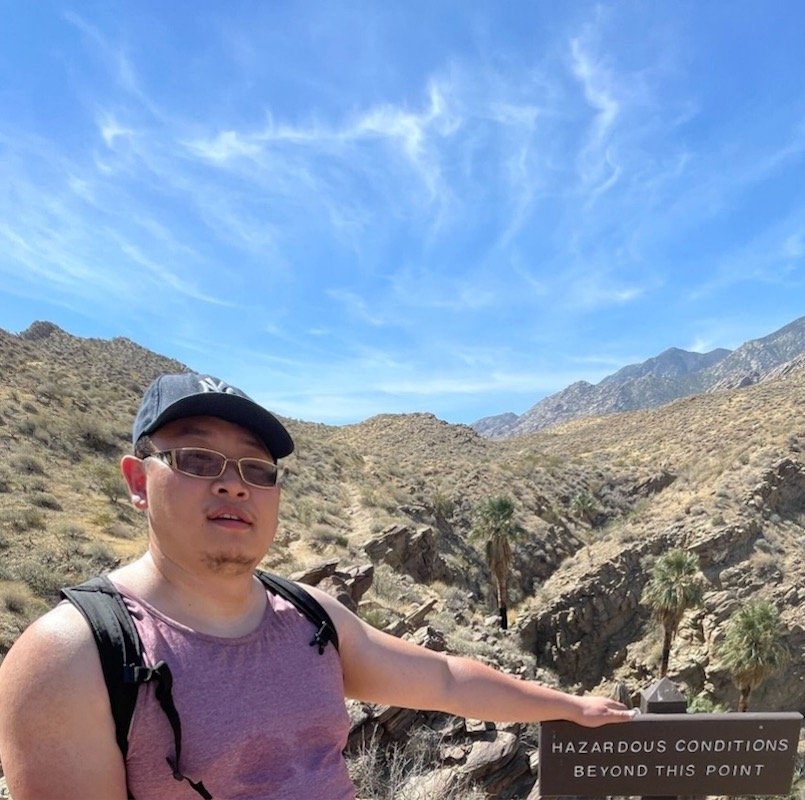
News
Gan Lab at the Keystone Symposium in Whistler, Canada
May 16-20, 2023
In the Keystone Symposium 2023, Celeste, Gloria, Sadaf, and Wenjie presented their projects and had exciting scientific discussions with other scientists in the field. We also enjoyed the beautiful nature in Whistler!
Congratulations Akida on winning 3rd place at the NYU Masters students poster presentation!
April 27, 2023
Click to enlarge
New publication in Nature Neuroscience: “Tau activation of microglial cGAS–IFN reduces MEF2C-mediated cognitive resilience”
April 24, 2023
Our study revealed a striking contribution of cGAS-interferon-MEF2C network to tau-induced neurotoxicities in Alzheimer’s disease and related disorders. We found that tau-activation of cGAS in AD diminishes cognitive resilience by decreasing the neuronal transcriptional network of MEF2C through type I interferon (IFN-I) signaling. The study was led by Dr. Sadaf Amin, Yige (Gloria) Huang, and Dr. Joe Udeochu in the Gan Laboratory, in collaboration with Appel Institute faculty Drs. Subhash Sinha and Wenjie Luo, in addition to Drs. Li Huei Tsai at the Picower Institute of Learning and Memory at MIT, Tara Tracy at the Buck Institute for Research on Aging, Rajiv Ratan at the Burke Neurological Institute at Weill Cornell Medicine, and Sue-Ann Mok at the University of Alberta.
-
The authors found that in microglia, engulfed pathogenic tau enters mitochondria and triggers mtDNA release into the cytosol which activates IFN-I responses in a cGAS-dependent manner. Genetic ablation of cGAS in tauopathy mice diminished microglial IFN-I, preserved synapse integrity and plasticity and protected against cognitive impairment without affecting the pathogenic tau load. In neurons, this resilient phenotype was accompanied by a significant upregulation of transcriptional network of MEF2C- an AD cognitive resilience gene- in an IFN-dependent manner. cGAS ablation enhanced, while activation of IFN-I downregulated, neuronal MEF2C network. Furthermore, pharmacological inhibition of cGAS in tauopathy mice enhanced neuronal MEF2C network and restored synaptic integrity, plasticity, and memory. These data strongly support the therapeutic potential of targeting cGAS-IFN-MEF2C axis to improve resilience against AD-related pathological insults.
Read the full paper →
Read the WCM Newsroom press release →
See our Twitter summary →
Congratulations Celeste for being awarded the Rita Levi Montalcini Scholarship!
April 14, 2023
Welcome Yuansong Wan to the lab!
April 7, 2023
Learn about Yuansong →
Welcome Jingjie Zhu to the lab!
March 27, 2023
Learn about Jingjie →
Welcome Ana Carney to the lab!
December 20, 2022
Learn about Ana →
Welcome Zeping Zhao to the lab!
September 5, 2022
Learn about Zeping →
Welcome Sarah Naguib, PhD, to the lab!
August 22, 2022
Learn about Sarah →
Congratulations Gillian on being awarded an F31 predoctoral fellowship from the NIH!
August 19, 2022
Her research project is titled “Trem2-APOE Pathway in Alzheimer’s Disease: Exploring the differential effects of R47H on the APOE3 and APOE4 backgrounds in a tauopathy model.”
Congratulations to Daiyan Ahmed and Elena Ajayi, our 2022 Appel and BMRI Summer Scholars for a successful internship!
August 12, 2022
Last year’s scholars and lab mentors from left to right:
Daiyan Ahmed and Hao Chen (Luo Lab)
Jonathan Victor and Elena Ajayi (Victor Lab)
Congratulations Akida on winning 3rd place at the NYU Masters students poster presentation!
April 27, 2023
Congratulations Akida on winning 3rd place at the NYU Masters students poster presentation!
April 27, 2023
Congratulations Gillian on being awarded an F31 predoctoral fellowship from the NIH!
August 19, 2022
Her research project is titled “Trem2-APOE Pathway in Alzheimer’s Disease: Exploring the differential effects of R47H on the APOE3 and APOE4 backgrounds in a tauopathy model.”
Congratulations to Daiyan Ahmed and Elena Ajayi, our 2022 Appel and BMRI Summer Scholars for a successful internship!
August 12, 2022
Last year’s scholars and lab mentors from left to right:
Daiyan Ahmed and Hao Chen (Luo Lab)
Jonathan Victor and Elena Ajayi (Victor Lab)















